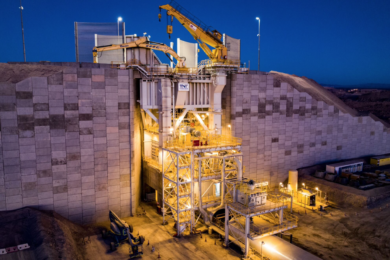The implementation of a new carbon tax in South Africa is set for 2016 and will require companies to pay tax on a percentage of their greenhouse gas (GHG) emissions. The tax is part of the government’s plan to undertake appropriate national actions to curb GHG emissions by 34% by 2020 and a further 42% by 2025. This plan follows on commitments made at the 2009 Copenhagen Conference of Parties. “With two years to go before the carbon tax is introduced, it is the ideal time for affected companies to evaluate and implement their most cost effective strategies,” says Jean-Luc Allard, SNC-Lavalin Vice-President of Acoustics, Air Quality and Climate Change, who was recently in South Africa to discuss emission reduction programmes with the company’s local customers. “We’re very involved in carbon management in industries around the world and have been working in this field for the past 20 years.”
In preparation for the implementation of the carbon tax, SNC-Lavalin is working with its clients and partners to assess their current emissions and determine expedited solutions for reductions. The GHG strategy may include internal reductions and to some extent, the proposed tax makes provision for an offset allowance to provide certain companies with the ability to buy offset carbon credits for between 5 and 10% of their total emissions.
Offset carbon credits will be generated by approved projects that reduce GHG emissions in South Africa. The projects will have to be registered, verified and follow pre-approved methodologies such as United Nations Clean Development Methodologies (UN-CDM), Verified Carbon Standard (VCS) or Gold Standard.
SNC-Lavalin’s approach is guided by a comprehensive cost curve. This approach evaluates different ways to reduce customers’ emissions, determining the cost per tonne of emission reduction for each option and also takes into account all the other advantages to reduce GHG (i.e. increase energy efficiency, increase production, reduce other damaging atmospheric emissions such as sulphur oxides (SOx) and nitrogen oxides (NOx) so the most environmentally responsible and cost-effective solutions can be implemented.
SNC-Lavalin has amassed a depth of experience in emissions control from more than two decades of helping customers around the world prepare for and comply with evolving environmental legislation. For example, the company is presently working with customers in the province of Quebec, Canada, where the objective is to reduce GHG emissions by 20% in 2020, from a base year of 1990, making it one of the most stringent programmes in the world. They have also equipped SaskPower the main supplier of electricity in the province of Saskatchewan in Canada with post-combustion CO2 and SO2 capture systems to significantly reduce overall emissions. As well, the company is in the process of implementing state-of-the-art NOx and SOx solutions at utilities in the USA.
In South Africa, SNC-Lavalin has successfully undertaken air quality projects for over 10 years, mainly related to the detection and reduction of process fugitive emissions in the petroleum industry. It also conducts regular emission inventories to evaluate systems in the overall facility and identify all possible sources of emissions, including stacks, vents, loading and unloading areas, tank farms and process equipment.
For example, in some cases the company refurbishes plants that have a high level of flaring, which could indicate an overflow of valuable material being burned to the atmosphere through the flare. The solution has been to refurbish processes to reduce streams sent to the flare, which increases the output of the plant and, rather than burning valuable products, these are re- used in the process. Over time, this makes for a more efficient and cost effective solution that also reduces local pollution.
Allard noted most importantly that the risk of failing to properly prepare for the new legislation is that the only remaining choice will be to pay the tax without adding value to the business. This represents a missed opportunity to use the obligations of the new legislation to cost-effectively add value to its operations while decreasing its environmental footprint.
With access to considerable global resources and best practice knowledge, SNC-Lavalin is able to provide a comprehensive environmental controls service solution to its clients.









